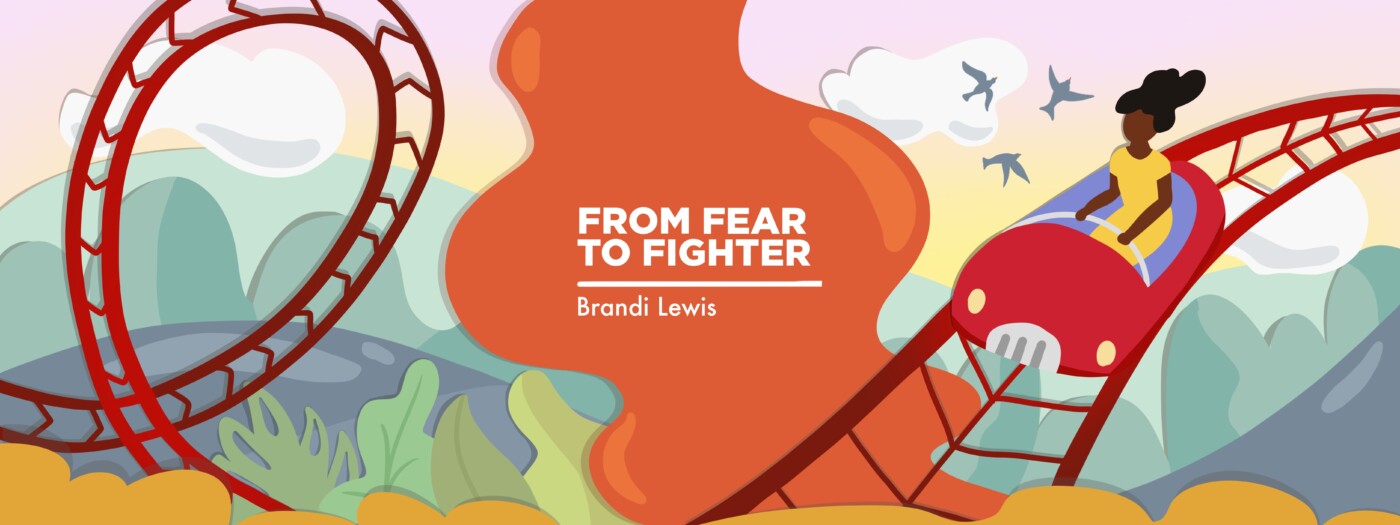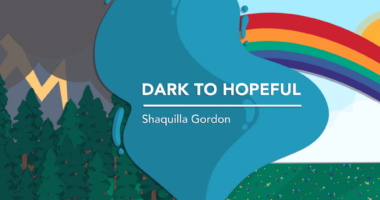When depression hits a person with a chronic illness
Recovering my creative response to something far beyond the blues

Depression seeps in like a snake, slithering slowly as it makes its way into your life. You feel it there, but only a little. Then, one day, the full force hits you.
Depression has a way of robbing you of your joy and happiness. It becomes regular to miss events or cancel monthlong plans. You spend nights and days lying in bed. You fill your days with complete silence, in a dark room, under the covers, while staring at the ceiling.
Minutes become hours, and hours become days. You look up and the weekend is gone. It’s Monday morning, and you push yourself out of bed to prepare for work.
Co-workers ask you, “How was your weekend?”
You reply, “It was good.”
The lie seems so real, and it’s repeated from 9 a.m. to 5 p.m. every Monday. You’ve practiced this line so many times you begin to believe it.
Work makes the day better. As 5 p.m. approaches, you question how you’ll spend your evening. Will you make yourself go out and do something? Or will you fill the evening with complete silence in a dark room, under the covers, while staring at the ceiling?
Depression cycles through chronic illness patients. We battle with how to spend our time, but when depression hits, we can spend it in solitude. Loneliness is scary, but what do we do when depression creates moodiness, and one of those moods is anger?
Writing heals.
Time heals.
My past returns to the present
Just the other day, as I was scanning through old journals and notebooks, I stumbled upon the above piece of creative writing. I’d forgotten I wrote it and thought I should’ve dated the time and place of its composition. But as I read my words from years ago, that time in my life came back.
I wrote this piece when depression had hit me, and writing was the only way I felt comfortable expressing how I felt. With tears streaming down, I wrote from the heart of its effects on my life.
I was working in corporate America at the time, battling my rare blood disorders aplastic anemia and paroxysmal nocturnal hemoglobinuria (PNH), all with a heavy dose of depression. At work, I was trying to conceal and hide the embarrassing notion of admitting that I was battling something beyond the blues. But I became exhausted from trying to act OK while surviving the day.
I was in therapy around this time, and I remember asking my therapist, “Why do I go in and out of depression?” She helped me understand that my diagnosis with PNH and aplastic anemia unlocked something within me. When a monumental life moment like that occurs, the familiar feeling of depression can develop and grow.
According to an article on the website Wondermind, the psychologist Jaime Zuckerman explains that the “sense of hopelessness that comes with depression lasts for at least two weeks, along with other symptoms,” adding that, beyond mental issues, “depression can physically impact a person.”
Sometimes it’s hard to share the rawness we all battle. I hope that sharing my piece of creative writing helps someone feel less alone.
Note: PNH News is strictly a news and information website about the disease. It does not provide medical advice, diagnosis, or treatment. This content is not intended to be a substitute for professional medical advice, diagnosis, or treatment. Always seek the advice of your physician or other qualified health provider with any questions you may have regarding a medical condition. Never disregard professional medical advice or delay in seeking it because of something you have read on this website. The opinions expressed in this column are not those of PNH News or its parent company, Bionews, and are intended to spark discussion about issues pertaining to paroxysmal nocturnal hemoglobinuria.








Leave a comment
Fill in the required fields to post. Your email address will not be published.